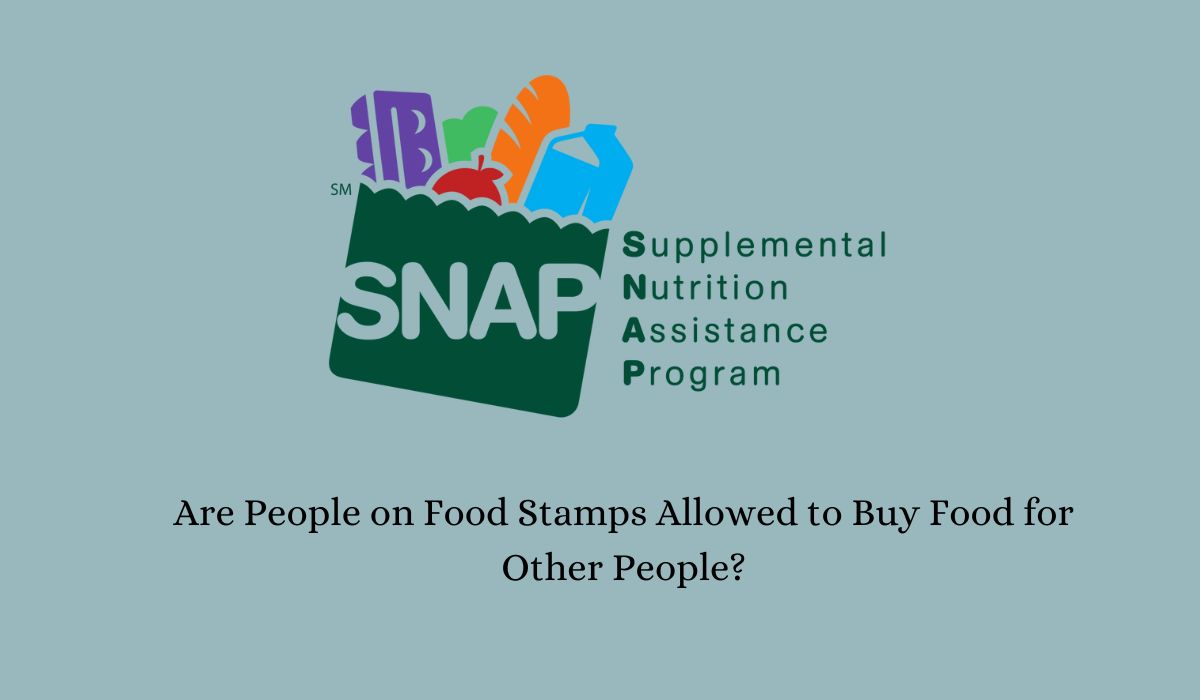As someone who has experienced the struggle of food insecurity, I understand how crucial it is to have access to resources that can help put food on the table. One such resource is the Supplemental Nutrition Assistance Program (SNAP), commonly known as food stamps.
But what happens when you are in a position where you want to buy food for someone else who may be in need, but you are also on food stamps yourself? Are people on food stamps allowed to buy food for other people? Let’s dive into the details and find out.
The Rules on Purchasing Food for Others
The primary rule of SNAP is that benefits are intended for the household members listed in the SNAP application. A household, in this context, is defined as individuals who live together and purchase and prepare meals together.
Therefore, the program’s guidelines implicitly assume that the food purchased with SNAP benefits is for the household members.
However, the regulations do not explicitly forbid the purchase of food for non-household members. This gray area leads to different interpretations and practices.
In general, while it’s not illegal to buy food for others, doing so regularly or in large quantities may raise questions about the appropriate use of SNAP benefits.
Ethical and Practical Considerations
- Supporting Others in Need: In some cases, SNAP recipients might want to help a friend or a relative in need. While this is a generous act, it’s important to remember that consistently spending benefits on non-household members could deplete the resources meant for the recipient’s household.
- Fraud and Misuse: Regularly using SNAP benefits to purchase food for others, especially if receiving money in return, can be considered fraud. Such actions can lead to serious consequences, including loss of benefits and legal repercussions.
- Community and Household Dynamics: In many communities, especially those with high levels of poverty, sharing resources is a common practice. However, SNAP recipients should balance community support with the need to ensure their household’s food security.
Legal Implications
If a SNAP recipient is found to be consistently purchasing food for non-household members, especially in exchange for cash, they could be accused of trafficking SNAP benefits, a violation of federal law. The penalties for SNAP fraud include disqualification from the program, fines, and even criminal charges.
Alternative Ways to Help
If you want to help someone in need but are concerned about the implications of using your SNAP benefits, there are other ways you can support them.
- Donate Extra Food: If you have additional food items that you don’t need or can’t use, consider donating them to a local food bank or organization that supports those in need. This way, you can help others without risking the misuse of your SNAP benefits.
- Advocate for Policy Change: If you believe that the current regulations around using SNAP benefits to purchase food for others are too restrictive, advocate for policy change. Voice your concerns and work towards creating more inclusive and effective policies.
- Support Community Programs: Look for community programs that offer free meals or food assistance to those in need. By supporting these initiatives, you can help ensure that people have access to food without risking the misuse of SNAP benefits.
Conclusion
While the SNAP program does not explicitly prohibit the purchase of food for non-household members, recipients need to use the benefits as intended – to ensure the nutritional needs of their household are met.
Acts of generosity should be balanced with the understanding of the program’s rules and the potential consequences of misuse.
As always, when in doubt, it’s advisable to consult with SNAP representatives or legal advisors to ensure compliance with the program’s guidelines.
